Filter by

Why be moral?
What reasons do we have to be moral, and are these reasons more compelling than the reasons we have to pursue non-moral projects? Ever since the Sophists first raised this question, it has been a focal point of debate. Why be Moral? is a collection of new essays on this fundamental philosophical problem, written by an international team of leading scholars in the field.
- Edition
- -
- ISBN/ISSN
- 9783110366396
- Collation
- VIII, 278 p.
- Series Title
- -
- Call Number
- 170 WHY w

Migration and Islamic ethics: issues of residence, naturalization and citizen…
Migration and Islamic Ethics, Issues of Residence, Naturalization and Citizenship contains various cases of migration movements in the Muslim world from ethical and legal perspectives to argue that Muslim migration experiences can offer a new paradigm of how the religious and the moral can play a significant role in addressing forced migration and displacement Readership: All interested in migr…
- Edition
- -
- ISBN/ISSN
- 9789004417342
- Collation
- 1 online resource
- Series Title
- Studies in Islamic ethics, vol. 2
- Call Number
- 297.7 JUR m
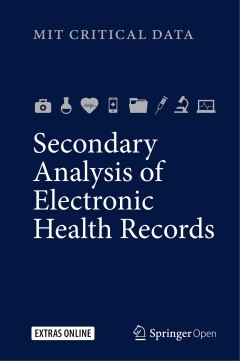
Secondary analysis of electronic health records
This book trains the next generation of scientists representing different disciplines to leverage the data generated during routine patient care. It formulates a more complete lexicon of evidence-based recommendations and support shared, ethical decision making by doctors with their patients. Diagnostic and therapeutic technologies continue to evolve rapidly, and both individual practitione…
- Edition
- -
- ISBN/ISSN
- 9783319437422
- Collation
- xxi, 427p. : ill.
- Series Title
- -
- Call Number
- 610.285 MAS s
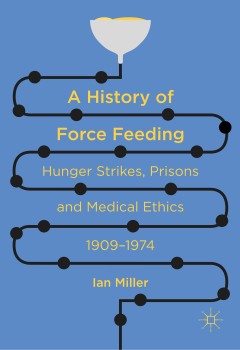
A history of force feeding : hunger strikes, prisons and medical ethics, 1909…
This book is the first monograph-length study of the force-feeding of hunger strikers in English, Irish and Northern Irish prisons. It examines ethical debates that arose throughout the twentieth century when governments authorised the force-feeding of imprisoned suffragettes, Irish republicans and convict prisoners. It also explores the fraught role of prison doctors called upon to perform the…
- Edition
- -
- ISBN/ISSN
- 9783319311135
- Collation
- ix, 267p. : ill.
- Series Title
- -
- Call Number
- 306.09 MIL h
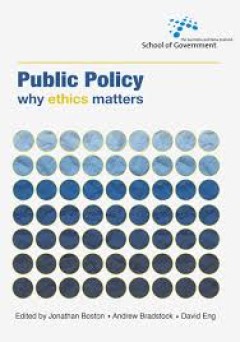
Public Policy: Why ethics matters
Ethics is a vigorously contested field. There are many competing moral frameworks, and different views about how normative considerations should inform the art and craft of governmental policy making. What is not in dispute, however, is that ethics matters. The ethical framework adopted by policy analysts and decision makers not only shapes how policy problems are defined, framed and analysed, …
- Edition
- -
- ISBN/ISSN
- 9781921666759
- Collation
- -
- Series Title
- -
- Call Number
- 170 BOS p
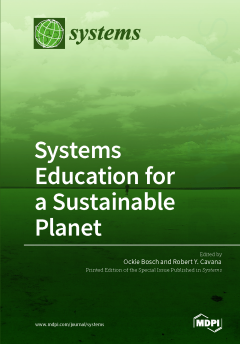
Systems Education for a Sustainable Planet
The issues facing humanity have become increasingly complex due to the fact they are embedded in a global web of ecological, economic, social, cultural and political processes that are dynamically interlinked. The capacity to conceptualise and redesign solutions, in systems and sustainability terms, will increasingly be what society and employers expect. This “expectation” is globally one o…
- Edition
- -
- ISBN/ISSN
- 9783038427902
- Collation
- vii, 239p.: ill.
- Series Title
- -
- Call Number
- 370 SYS s
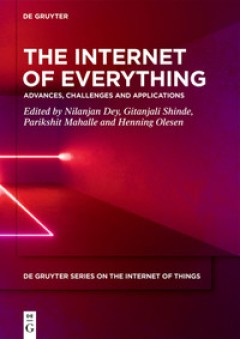
The Internet of everything : advances, challenges and applications
In the era before IoT, the world wide web, internet, web 2.0 and social media made people’s lives comfortable by providing web services and enabling access personal data irrespective of their location. Further, to save time and improve efficiency, there is a need for machine to machine communication, automation, smart computing and ubiquitous access to personal devices. This need gave birth t…
- Edition
- -
- ISBN/ISSN
- 9783110628517
- Collation
- VIII, 176 p.
- Series Title
- De Gruyter Series on the Internet of Things
- Call Number
- 004.678 INT i
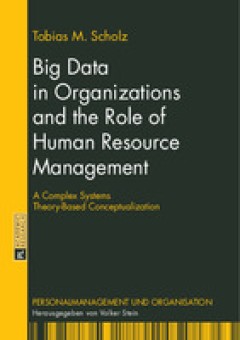
Big data in organizations and the role of human resource manajment: a complex…
Big data are changing the way we work. This book conveys a theoretical understanding of big data and the related interactions on a socio-technological level as well as on the organizational level. Big data challenge the human resource department to take a new role. An organization’s new competitive advantage is its employees augmented by big data.
- Edition
- -
- ISBN/ISSN
- 9783631719039
- Collation
- xvii, 237p.: ill.
- Series Title
- -
- Call Number
- 658.4

From Colonialism to International Aid External Actors and Social Protection …
This open access volume addresses the role of external actors in social protection in the Global South, from the Second World War until today, analysing the influence of colonial powers, superpowers during the Cold War and contemporary donor agencies. Following an introduction to the analysis of external actors in social policy making in the Global South, the contributions explore which externa…
- Edition
- -
- ISBN/ISSN
- 9783030382001
- Collation
- xxv, 384p.: ill.
- Series Title
- -
- Call Number
- 341.584
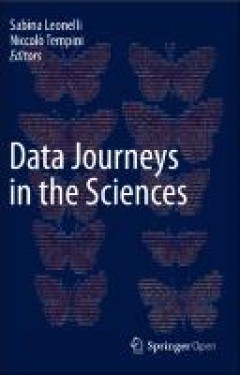
Data journeys in the sciences
This groundbreaking, open access volume analyses and compares data practices across several fields through the analysis of specific cases of data journeys. It brings together leading scholars in the philosophy, history and social studies of science to achieve two goals: tracking the travel of data across different spaces, times and domains of research practice; and documenting how such journeys…
- Edition
- -
- ISBN/ISSN
- 9783030371777
- Collation
- xvii, 412p.: ill.
- Series Title
- -
- Call Number
- 004 DAT d
 Computer Science, Information & General Works
Computer Science, Information & General Works  Philosophy & Psychology
Philosophy & Psychology  Religion
Religion  Social Sciences
Social Sciences  Language
Language  Pure Science
Pure Science  Applied Sciences
Applied Sciences  Art & Recreation
Art & Recreation  Literature
Literature  History & Geography
History & Geography